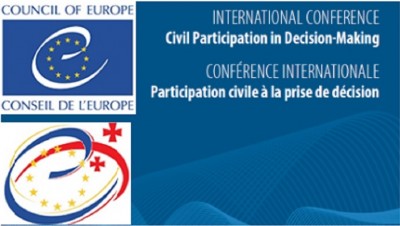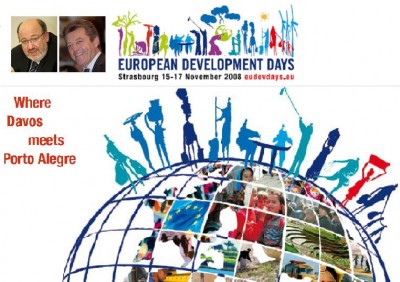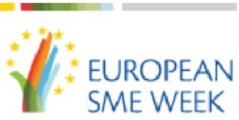 newsitems
newsitems  CoE Governance Head Mollari to EF:"e"-Democracy Ready to Boost Citizens Participation since Pandemic
CoE Governance Head Mollari to EF:"e"-Democracy Ready to Boost Citizens Participation since Pandemic
CoE Governance Head Mollari to EF:"e"-Democracy Ready to Boost Citizens Participation since Pandemic

*Strasbourg/Angelo Marcopolo/- Replying to a relevant "Eurofora"s Question, the President a.i. of CoE's prestigious PanEuropean Committee on Democracy and Governance, Markku Mollari, from Finland, announced, in substance, that Digital "E"-Democracy is practically Ready, Nowadays, to Help Boost Citizens Participation to Public Decision-Making, (along the main lines of "Eurofora"s Project), particularly since the current Pandemic Virus' Crisis.
- And he did Not Exclude, a priori, that this may, "Later"-on, even "Lead" also to a "Hard Law", throughout CoE's 47 Member Countries, (See Infra).
Significantly, he said that in the Context of a landmark CoE's International Conference on civil Participation in Decision-Making, where "Eurofora" had been Invited to take an active part, by CoE's Presidency by Georgia, (November 2019-May 2020, shortly before Greece takes over, Later this Month, for the Period of May - November 2020, followed by Germany). Initially Scheduled for the Beginning of March in Strasbourg, this was the 1st CoE's International Conference obliged to be Postponed sine die, because of the Deadly Virus' Crisis, But it Resumed Nowadays, precisely in the Form of a Digital Web-Conference...
-------------------------
- "Eurofora" had practically Asked President Markku Mollari :
(A) "WHEN" he expected that a Link between "e-Democracy" and "civil Participation" might be Developed by the CoE, as he had Highlighted Earlier (See Infra), and Whether he "could ... be ... Explicit about its Content".
(B) "IF" he thought that, even an eventually "Soft Law" (f.ex. in the Form of a CoE's "Recommendation"), might, eventually, Become, Later-on, "at least Partially, also "Hard Law", f.ex. via National Judges' Case-Law, Legislators, Administrative Practice, etc., perhaps Coordinated by ECHR".
-------------------------------------------
- (A) "Thank you. To Answer the 1st Part of Your Question, the Guidelines on E-Democracy ...have Already been approved by the (CoE's) Committee on Democracy and Governance...", its President sharply replied to "Eurofora".
- But, at least for the Time being, this has been done "in the Form of a Toolkit", and just "in Substance", Not Yet "in their Final Version", as he pointed out.
=> In Consequence, "they Will be (Definitively and Completely) Approved", once Finalized, "in the (CoE) Committee's Next Plenary meeting", which is due, "most Likely", to be organized around this "Summer" 2020, (i.e. during the InComing Greek CoE's Presidency of May-November 2020), he Carefully Announced.
+ In Fact, these New (2020) CoE's "Guidelines" have a Solid "Base" "on Recommendation CM/Rec(2009)1 of the Committee of Ministers (CoE's Highest Political Body) to member States, on Electronic (e)-Democracy", Markku Mollari reminded. Which is "the 1st International Legal Instrument to set Standards in the field of E-Democracy" in the World, already 15 Years Earlier...
+ Concerning their Content (Comp. Supra), "in Line with the Focus on Multi-Level governance of the (CoE's) Committee on Democracy and Governance" in general, these New (2020) "Guidelines seek to provide Authorities at All Levels, with concrete Examples of Policies, Measures and Mechanisms that can contribute to EnRiching a Democratic Culture and Strengthening Democratic Practices and institutions, at National, Regional and Local level", he added.
++ Moreover, "these (New, 2020 CoE's) Guidelines are addressed to the Broad Range of Stakeholders, such as Public Authorities and their representatives, Political" organisations, "Individuals (Citizens), NGOs, and Civil Society at large, including Media, and the Business community", he specified. This is "In Line with the Consistent Approach Used by the CoE in the area of Democracy" in general.
+++ The, ("Currently Finalized"), "Documents include (also) Mechanisms related to e-Participation, e-Petitions and e-Referendums", he revealed Earlier, (but withOut going into Concrete Details).
----------------------------
(B) "With regards to Your 2nd Question, (Comp. Supra), these "Soft" Tools are meant to be Practical, and Helpful – they should be relatively Easy to apply... We intended for the many Examples in the document from various countries to act as an Inspiration - to apply them as Appropriate, share Ideas and get new ones", President Mollari Replied to "Eurofora".
- This goes "Even in Difficult circumstances", he Stressed.
+ However, At the Moment, he felt that "it is Too Early (sic !) to say Whether these will Lead to any “Hard Law”", (But withOut Excluding Anything, a priori)...
=> "That should be Evaluated Later", he Wisely Concluded, Replying to Our Ultime Query (Comp. Supra), in a way which Left the Future Open !
Topicaly,, CoE's Democracy/Governance Committee's President Markku Mollari from Finland, said that to "Eurofora", Just 1 Month Before the next EU Heads of State/Government Summit, on Mid-June, which is due to Deal also with the Forthcoming Exceptional "Conference on Europe's Future" (2020-2021+), where EU Citizens' Participation to Public Decision-Making is Notoriously at the Focus...
- At any case, it's a Fact that, "in the Present Day – no less during our current Health Emergency –", "one canNot discuss civil Participation withOut referring to anOther Theme, closely followed by the European (EU+CoE) community: e-Democracy", righfully Mollari Stressed Earlier.
- Because "Digital tools and Technologies can, and should, Support Democratic processes, by providing increased Access to political Decision-making, and enabling Citizens to Participate in the public Debate, in New Ways" he underlined.
=> That's why, "the good cooperation between New Tools (Internet) and Traditional tools of Participation, is the Key to building better Trust ...between different levels of Government and the wider civil Society", "Reflecting the Centrality of this topic for the present and future of Democratic practice".
At a Moment when the In-coming CoE's Greek Presidency, later this Month, (May-November 2020) seems reportedly due to Focus, precisely, on such Digital Tools, Both in order to ByPass Problems raised by the Virus' Crisis, and in order to Boost a Public Democratic Debate with Citizens on core Human Rights, Democracy and Rule of Law during Pandemics, while, at the Same Time, also the EU Leaders prepare an Exceptional 2020-2021 Conference on "Europe's Future", due to Focus also on EU Citizens' Participation to the Decision-making, the above-mentioned Key Observations of PanEuropean CoE's "Democracy and Governance" Committee's experienced President, are certainly of key Topical Interest.
(../..)
("Draft-News")
-----------------------------------------
Main Menu
Home Press Deontology/Ethics 2009 Innovation Year EU endorses EuroFora's idea Multi-Lingual FORUM Subscribers/Donors FAQs Advanced search EuroFora supports Seabird newsitems In Brief European Headquarters' MAPs CoE Journalists Protection PlatformBRIEF NEWS
- 00:00 - 02.06.2021
- 00:00 - 18.10.2020
- 00:00 - 19.06.2020
- 00:00 - 18.05.2020
- 00:00 - 20.04.2020
- 00:00 - 02.02.2020
- 00:00 - 09.12.2019
- 00:00 - 27.11.2019
- 00:00 - 16.11.2019
Popular
- Yes, we could have prevented Ferguson riots says World Democracy Forum's Young American NGO to ERFRA
- Spanish People Elect CenterRIGHT Majority with 1st Party and Total of 178 MPs (6 More than the Left)
- Pflimlin's vision
- The European Athletic "Dream Team", after Barcelona 2010 Sport Championship Results
- Source Conseil d'Europe à ERFRA: Debatre Liberté d'Opposants à Loi livrant Mariage+Enfants à Homos ?
- Head of BioEthics InterGroup, MEP Peter Liese : "Embryonic stem cell research reaching its END" !?
- Spain: Jailed Turkish Terror suspect with Explosive,Drones,Chechen accomplices stirs Merah+ Burgas ?
- UN Head Ban Ki Moon at CoE World Democracy Forum : - "Listen to the People !"
Latest News
- Test Photos (f.ex.+ Invit to EU + Korea Peace meeting)
- EUOmbudsmen Conference 2022: Digital Gaps affect People's Trust threaten EF Project on EU Future ?
- French Election : Black Out on Virus, but Obligation for Fake 'Vaccines" Challenged
- Both French Presidential Candidates point at "Humanism" in crucial times...
- France : Zemmour = Outsider may become Game Changer in Presidential + Parliamentary Elections 2022
Statistics
Visitors: 60265747Archive
Login Form
Other Menu
Europe brings Development dynamics at Global Crisis' Summit debates

Thanks also to EU Parliament Plenary's Strasbourg gathering, EU, during the French EU Presidency, managed to integrate the Development issues at Top Debates on the World Summit against the Economic Crisis :
For the 1st time, it's at the same moment with the Wahington G-20 Summit that EU Commissioner Louis Michel co-organizes here with the French EU Presidency parallel mega-events for the "European Development Days", starting from this Week-End and concluding at the eve of a landmark debate in EU Parliament, next Tuesday, on the outcome and follow-up of the Wash.DC Summit.
EU and its Member Countries are the biggest donor for UNO's Millenium Development goals, with 56%, but the 27 are currently struggling to develop a collective leadership in Economic and social matters, that the 15 of EuroGroup (together with the UK and other countries interested to be usefully associated) are starting to spearhead, after the initial success of the 1st EuroZone Heads of State and Government Summit, of October 12 in Paris, according to a New Repport by MEPs Pervench Beres and Werner Langen on the 10 Years of EuroZone (1999-2009) debated Monday and voted on Tuesday.
EU, CoE and World personalities will interact here with Heads of State or Government from Tanzania (African Union chair), Burkina Faso (CEDEAO + UEMOA chair), Zimbabwe (MDC chair), Madagascar, Haiti, Mali, Benin, etc, and some 3000 participants from the Economy, Civil Society, Media, Experts, etc, while the City of Strasbourg adds various related Citizen-events.
Opened by French Secretary of State Alain Joyandet on November 15, and followed by a video-contact with EU Commission President Jose Baroso on the Washington Summit Sunday, the EDD are concluded by Foreign Minister Bernard Kouchner on Monday, while their main concerns cannot be ignored in the Debate that EU Parliament will hold on Tuesday, (followed by a Resolution on Wednesday), jointly on the G-20 Washington Summit and on EU Commission's work program for 2009.
A practical opportunity for EU to reflect where it's better to spend EU Citizens' money...
The move is prolonged in several Paris' meetings of EU chair, French President Nicolas Sarkozy with African Heads of State leading regional Organizations, as from Tanzania (A.U. Chair), Burkina Faso (chair of Economic African organizations), Togo, etc, (in parallel with a Ministerial EU - African Union conference in Ethiopia, followed by a visit to Tchad), logically concluded by a meeting with Robert Zoellic President of the World Bank.
Many have already warned that an eventual aggravation of Development's Gap accross the World might become much more dangerous to Global Economy, Security, Values and Quality of Life, than Global Warming and/or other, even more serious challenges...
Will they find an innovative and voluntarist way to really deal with the Development Gap, which might also contribute to help face the Economic Crisis ?


















